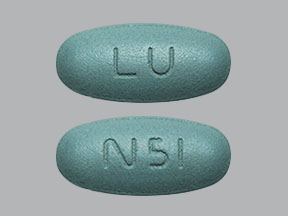Abacavir/lamivudine/zidovudine Disease Interactions
There are 7 disease interactions with abacavir / lamivudine / zidovudine.
- Bone marrow suppression
- Myopathy
- Hepatitis B
- Hepatotoxicity
- Pancreatitis
- Cardiovascular disease
- Renal dysfunction
AZT (applies to abacavir/lamivudine/zidovudine) bone marrow suppression
Major Potential Hazard, High plausibility. Applicable conditions: Bone Marrow Depression/Low Blood Counts
Zidovudine (AZT) may cause bone marrow toxicity, most commonly manifested as granulocytopenia and anemia, particularly in patients with advanced, symptomatic HIV disease. Thrombocytopenia not related to HIV may also occasionally occur. Zidovudine should be given with extreme caution to patients with preexisting bone marrow depression (indicated by a granulocyte count below 1000 cells/mm3 or hemoglobin less than 9.5 g/dL) or blood dyscrasias. Routine blood counts are recommended, and generally should occur more frequently in patients with advanced HIV disease. Dosage reductions may be necessary.
AZT/telbivudine (applies to abacavir/lamivudine/zidovudine) myopathy
Major Potential Hazard, High plausibility. Applicable conditions: Myoneural Disorder
Prolonged use of certain nucleoside reverse transcriptase inhibitors (NRTIs) such as zidovudine and telbivudine may commonly cause myopathy, including rare cases of rhabdomyolysis. The myopathy may be dose-related and is characterized by persistent, unexplained muscle aches and/or weakness in conjunction with increases in creatine phosphokinase (CPK) values. Therapy with these NRTIs should be administered cautiously in patients with preexisting myopathy or a myoneural disorder, since it may delay the recognition or confound the diagnosis of a drug-induced musculoskeletal effect. Patients should be advised to report promptly any unusual muscle pain, tenderness or weakness, particularly if accompanied by malaise or fever. NRTI therapy should be interrupted if drug-related myopathy is suspected, and discontinued if myopathy is diagnosed.
NRTIs (applies to abacavir/lamivudine/zidovudine) hepatitis B
Major Potential Hazard, Moderate plausibility. Applicable conditions: Infectious Hepatitis
Severe acute exacerbations of HBV have been reported in HIV-1/HBV-coinfected patients who have discontinued products containing emtricitabine, lamivudine, and/or tenofovir disoproxil fumarate (DF) and may occur with discontinuation of tenofovir alafenamide-containing products. It is recommended that all patients with HIV-1 infection be tested for the presence of HBV before or when initiating products containing emtricitabine, lamivudine, tenofovir DF, or tenofovir alafenamide. Hepatic function should be monitored closely with both clinical and laboratory follow-up for at least several months in HIV-1/HBV-coinfected patients who discontinue products (including fixed-dose combination products) that contain emtricitabine, lamivudine, tenofovir DF, or tenofovir alafenamide. If appropriate, initiation or resumption of antihepatitis B therapy may be warranted, especially in patients with advanced liver disease or cirrhosis since posttreatment exacerbation of hepatitis may lead to hepatic decompensation and liver failure.
NRTIs (applies to abacavir/lamivudine/zidovudine) hepatotoxicity
Major Potential Hazard, Moderate plausibility. Applicable conditions: Alcoholism, Liver Disease, Alcoholism, Liver Disease, Alcoholism, Liver Disease
Hepatotoxicity including lactic acidosis, severe hepatomegaly with steatosis, fulminant hepatitis, and hepatic failure has been associated with the use of some nucleoside reverse transcriptase inhibitors (NRTIs) alone or in combination with other antiretroviral agents. Therapy with NRTIs should be administered cautiously in patients with preexisting liver disease, a history of alcohol abuse, or hepatitis. Therapy should be suspended if clinical or laboratory findings suggestive of lactic acidosis or pronounced hepatotoxicity occur. The use of abacavir is contraindicated in patients with moderate to severe liver dysfunction as its safety and efficacy have not been established in these patients.
NRTIs (applies to abacavir/lamivudine/zidovudine) pancreatitis
Major Potential Hazard, Moderate plausibility. Applicable conditions: Hyperlipidemia, Alcoholism
The nucleoside reverse transcriptase inhibitors, didanosine, stavudine, and lamivudine, may cause pancreatitis. The incidence is generally low but is up to 7% with didanosine, and up to 18% in pediatric patients given lamivudine. Patients with a history of or known risk factors for pancreatitis (such as alcohol abuse or hypertriglyceridemia) should be monitored closely during therapy with these agents. Therapy should be discontinued at the first signs/symptoms suggestive of pancreatitis (e.g., nausea, vomiting, abdominal pain, hyperamylasemia with dysglycemia, rising triglycerides, decreasing serum calcium), and preferably permanently discontinued if clinical pancreatitis develops.
Abacavir (applies to abacavir/lamivudine/zidovudine) cardiovascular disease
Moderate Potential Hazard, Moderate plausibility. Applicable conditions: History - Myocardial Infarction, Hypertension, Hyperlipidemia, Diabetes Mellitus
Some clinical trials have reported increased risk of myocardial infarction in patients treated with abacavir. Although some of the findings are inconclusive, as a precaution, the underlying risk of coronary heart disease should be assessed before therapy, and action should be taken to minimize all modifiable risk factors such as hypertension, hyperlipidemia, diabetes mellitus, smoking, etc.
NRTIs (applies to abacavir/lamivudine/zidovudine) renal dysfunction
Moderate Potential Hazard, Moderate plausibility.
The apparent oral clearance of nucleoside reverse transcriptase inhibitors is decreased in patients with renal dysfunction. Dosage adjustments are recommended for lamivudine and stavudine in patients with CrCl less than 50 mL/min; zidovudine dosage should be reduced in patients with CrCl less than 15 mL/min. Fixed-dose combination products containing lamivudine are not recommended for patients with CrCl less than 30 or 50 mL/min; the manufacturer product information should be consulted.
Switch to professional interaction data
Abacavir/lamivudine/zidovudine drug interactions
There are 400 drug interactions with abacavir / lamivudine / zidovudine.
Abacavir/lamivudine/zidovudine alcohol/food interactions
There are 5 alcohol/food interactions with abacavir / lamivudine / zidovudine.
More about abacavir / lamivudine / zidovudine
- abacavir/lamivudine/zidovudine consumer information
- Check interactions
- Compare alternatives
- Reviews (1)
- Drug images
- Side effects
- Dosage information
- During pregnancy
- Drug class: antiviral combinations
- En español
Related treatment guides
Drug Interaction Classification
| Highly clinically significant. Avoid combinations; the risk of the interaction outweighs the benefit. | |
| Moderately clinically significant. Usually avoid combinations; use it only under special circumstances. | |
| Minimally clinically significant. Minimize risk; assess risk and consider an alternative drug, take steps to circumvent the interaction risk and/or institute a monitoring plan. | |
| No interaction information available. |
See also:
Further information
Always consult your healthcare provider to ensure the information displayed on this page applies to your personal circumstances.


